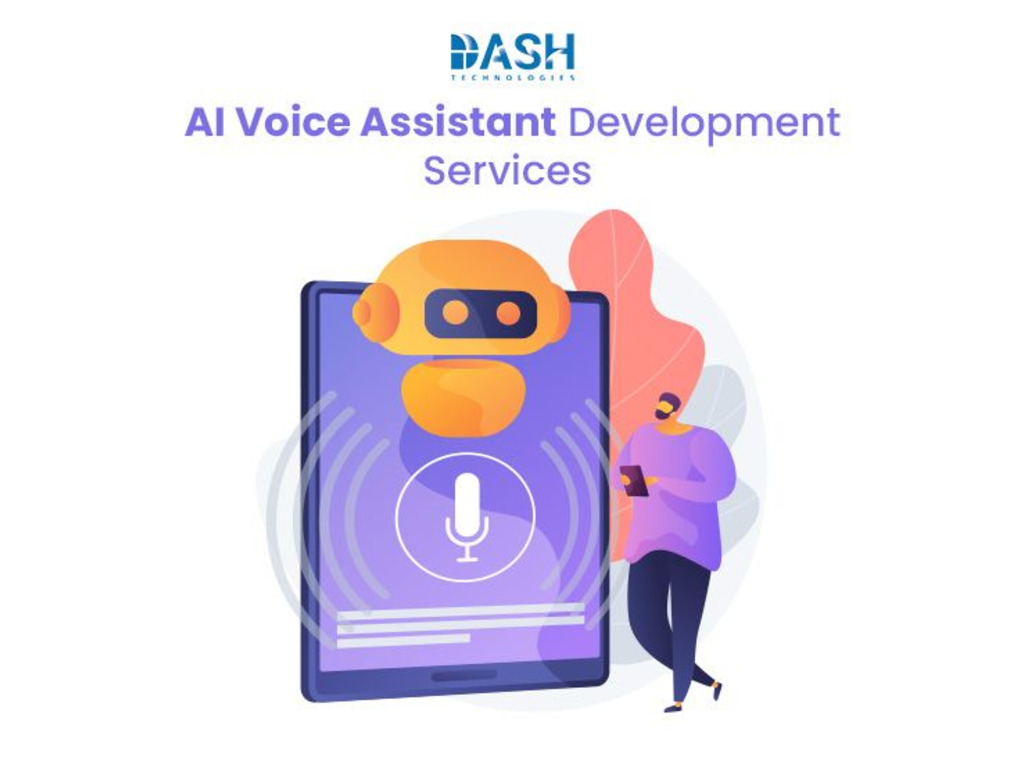Voice Assistant Development Revolutionized: OpenAI's Latest Tools

Table of Contents
Enhanced Natural Language Understanding (NLU) with OpenAI's Models
OpenAI's powerful language models, such as GPT-3 and GPT-4, are significantly improving Natural Language Understanding (NLU) in voice assistants. These models are trained on massive datasets of text and code, allowing them to understand and interpret human language with unprecedented accuracy and nuance. This leads to more sophisticated and human-like interactions.
- Improved accuracy in intent recognition: OpenAI's models can accurately identify the user's intention behind a spoken request, even with ambiguous or complex phrasing. This reduces misinterpretations and improves the overall effectiveness of the voice assistant.
- Better handling of complex queries and nuanced language: Gone are the days of simple, keyword-based commands. OpenAI's models can handle complex, multi-part questions and understand the subtleties of human language, including sarcasm, idioms, and metaphors. This enables more natural and engaging conversations.
- Enhanced contextual understanding for more natural conversations: The models maintain context throughout a conversation, remembering previous interactions and using that information to inform subsequent responses. This creates a more fluid and natural conversational flow.
These improvements extend to features like sentiment analysis (detecting the emotional tone of a user's request) and entity recognition (identifying key information within a sentence, such as names, dates, and locations). For example, a voice assistant powered by OpenAI can understand the difference between "I'm feeling happy" and "I'm feeling sad," and adapt its response accordingly. It can also extract relevant information from a request like "Set a reminder for my doctor's appointment next Tuesday at 2 PM," accurately scheduling the reminder.
Streamlined Development with OpenAI's APIs
OpenAI's APIs significantly simplify the voice assistant development process, offering developers easy access to powerful language models and pre-trained solutions. This dramatically reduces development time and costs.
- Easy integration of powerful language models: Developers can seamlessly integrate OpenAI's models into their voice assistant applications using intuitive APIs. This eliminates the need to build complex language processing components from scratch.
- Reduced development time and costs: By leveraging pre-trained models, developers can focus on building the unique features of their voice assistants, rather than spending time and resources on foundational NLU tasks.
- Access to pre-trained models for various tasks: OpenAI provides pre-trained models for various aspects of voice assistant development, including speech-to-text (converting spoken words into text), text-to-speech (converting text into spoken words), and natural language generation (creating human-like text responses).
Using pre-trained models offers significant advantages over building from scratch. It saves considerable time and resources while ensuring high-quality performance. APIs like the OpenAI API and Whisper API are particularly relevant, offering robust capabilities for speech-to-text and text generation crucial for effective voice assistant functionality.
Advanced Voice Synthesis and Recognition Capabilities
OpenAI is at the forefront of advancements in speech synthesis and recognition, leading to a significant improvement in the user experience.
- More natural-sounding voice generation: OpenAI's models can generate more natural and expressive speech, making interactions with voice assistants feel more human-like. This enhances user engagement and satisfaction.
- Improved accuracy in speech-to-text conversion, even in noisy environments: OpenAI's speech-to-text technology offers higher accuracy, even in challenging acoustic conditions. This improves the reliability of voice assistants in real-world scenarios.
- Support for multiple languages and accents: OpenAI's models are trained on diverse datasets, enabling support for multiple languages and accents. This expands the accessibility and global reach of voice assistants.
These improvements contribute to a more inclusive and user-friendly experience. OpenAI's partnerships and tools dedicated to voice technology further accelerate these advancements.
Addressing Ethical Considerations in Voice Assistant Development
The power of AI in voice assistant development necessitates careful consideration of ethical implications.
- Mitigating biases in training data: The training data used to develop these models must be carefully curated to minimize biases, ensuring fair and unbiased performance.
- Ensuring user data privacy and security: Protecting user data is paramount. Robust security measures and transparent data handling practices are crucial.
- Responsible development and deployment practices: Developers should adhere to ethical guidelines and best practices throughout the development lifecycle, considering potential societal impacts.
Best practices include rigorous testing, ongoing monitoring for biases, and transparent communication with users about data collection and usage.
Conclusion
OpenAI's latest tools are dramatically reshaping the field of voice assistant development, offering developers powerful new capabilities and simplifying the creation process. From improved NLU to streamlined APIs and advanced voice synthesis, the possibilities are vast. The advancements in natural language processing and speech recognition are leading to more intuitive and human-like interactions, revolutionizing how we interact with technology. Addressing ethical concerns remains crucial for responsible development. Embrace the future of voice assistant development by exploring OpenAI's innovative tools and resources. Start building the next generation of intelligent voice assistants today! Learn more about leveraging OpenAI for your voice assistant development projects.

Featured Posts
-
 The Pointless Comeback Why Michael Schumachers Return Failed Despite Red Bulls Input
May 20, 2025
The Pointless Comeback Why Michael Schumachers Return Failed Despite Red Bulls Input
May 20, 2025 -
 Colombian Models Murder Femicide Condemnation Grows After Mexican Influencers Killing
May 20, 2025
Colombian Models Murder Femicide Condemnation Grows After Mexican Influencers Killing
May 20, 2025 -
 Marc Lievremont Se Souvient De Millau
May 20, 2025
Marc Lievremont Se Souvient De Millau
May 20, 2025 -
 Talisca Nin Saha Tartismasinin Ardindan Fenerbahce Nin Tadic Transfer Hedefi
May 20, 2025
Talisca Nin Saha Tartismasinin Ardindan Fenerbahce Nin Tadic Transfer Hedefi
May 20, 2025 -
 Agatha Christies Poirot Unraveling The Mysteries Of The Famous Detective
May 20, 2025
Agatha Christies Poirot Unraveling The Mysteries Of The Famous Detective
May 20, 2025
